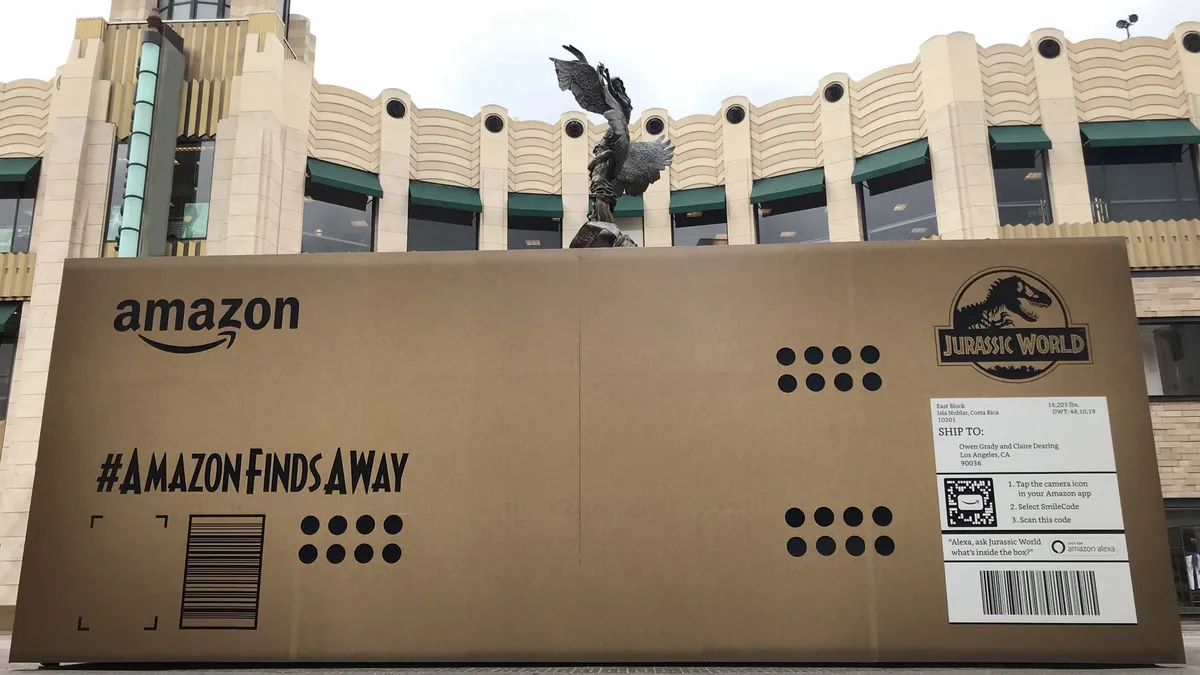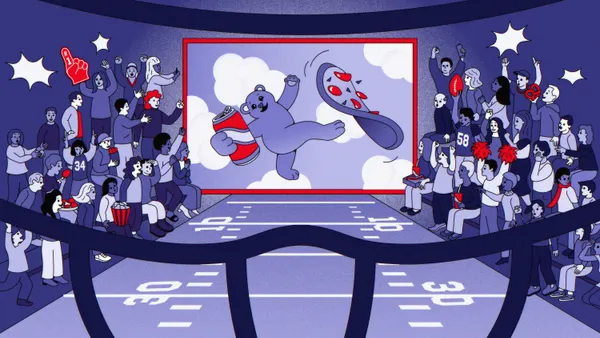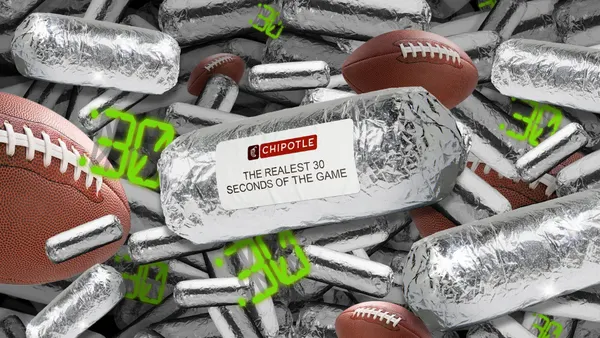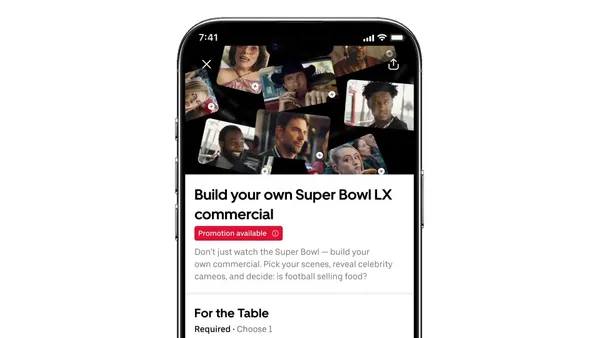Dive Brief:
- Amazon is the most valuable U.S. brand with a 20% annual jump to a record $334.65 billion this year. The e-commerce giant topped the list of the 100 most valuable U.S. brands, whose combined value rose 5% to $3.81 trillion, per WPP and Kantar's 2020 BrandZ ranking. That total is bigger than the annual output of Germany, the world's fourth-biggest economy, the firms noted in a statement shared with Marketing Dive.
- Amazon rose two spots in the ranking to push aside Apple, whose brand value slipped 4% to $303.4 billion while its ranking fell to No. 2. Amazon also overtook Google, the search giant whose brand value slid 3% to $303.2 billion, while its ranking dropped one spot to No. 3. Microsoft, Visa, Facebook, McDonald's, Mastercard, AT&T and Verizon rounded out the top 10.
- Facebook-owned Instagram saw the biggest jump in brand value with a 98% surge to $28.9 billion and a ranking of No. 31. The image-sharing app's growth outpaced Pinterest's 45%, Salesforce's 40%, Chipotle Mexican Grill's 33% and Cisco's 31% gains. UnitedHealthcare, Aetna, Airbnb and Taco Bell this year appeared in the top 100 for the first time, per WPP and Kantar.
Dive Insight:
Amazon's growing brand value can be attributed to the e-commerce giant's focus on innovation and customer service, although it has faced greater scrutiny in the press for not adequately policing third-party sellers in its online marketplace. Going forward, one of the biggest challenges Amazon may face in continuing to build its value is convincing other brands to partner with a platform that can be both a competitor and a friend. This was evident this week in Nike's decision to stop selling directly on Amazon.
Amazon is among the tech companies that dominate multiple lists of the most influential brands, but also may become victims of their own success. U.S. and European authorities have fined Amazon, Apple, Google or Facebook, and are currently investigating their possibly predatory business practices. The strength of the respective brands won't necessarily protect them from a greater regulatory threat.
Technological innovation helps to elevate brand value, which explains why the tech industry dominates BrandZ's top 100 with 18 brands whose combined value is $1.4 trillion, or 37% of the total. The U.S. leads other markets for innovation, with 36% of U.S. brands ranking highly on this measure among consumers. Ride-hailing pioneer Uber is considered the most innovative brand, followed by Amazon, Netflix, Disney and FedEx. Uber, FedEx, Pampers, UPS and Amazon also provide the best customer experience. The focus on innovation also points to why U.S. brands have a record 54 spots in the top 100, per WPP and Kantar.
Chipotle stands out as the only company outside the tech industry to see rapid growth in its brand value. The burrito chain has overcome several tainted food scandals and focused on innovation in food, delivery and digital ordering. Chipotle's innovations include Lifestyle Bowls for people with specialized diets, in-store ordering kiosks and a partnership with delivery service DoorDash, per WPP and Kantar. Chipotle in March introduced a customer loyalty program that had signed on 7 million members by the end of Q3, CEO Brian Niccol said in a recent conference call with analysts. The fast-casual chain is demonstrating the importance of continual innovation in driving brand value.
Brands that consumers view as the most "meaningfully different" by improving their lives boosted value 44% faster than the least meaningfully different brands since 2018. Meaningfully different brands also have staying power in the top 100, with 88 brands that were listed in 2018 still listed today. The firms also found that top 100 brands make good investments, delivering a 135% higher return than the S&P 500 Stock Index in the past two years, per WPP and Kantar.













